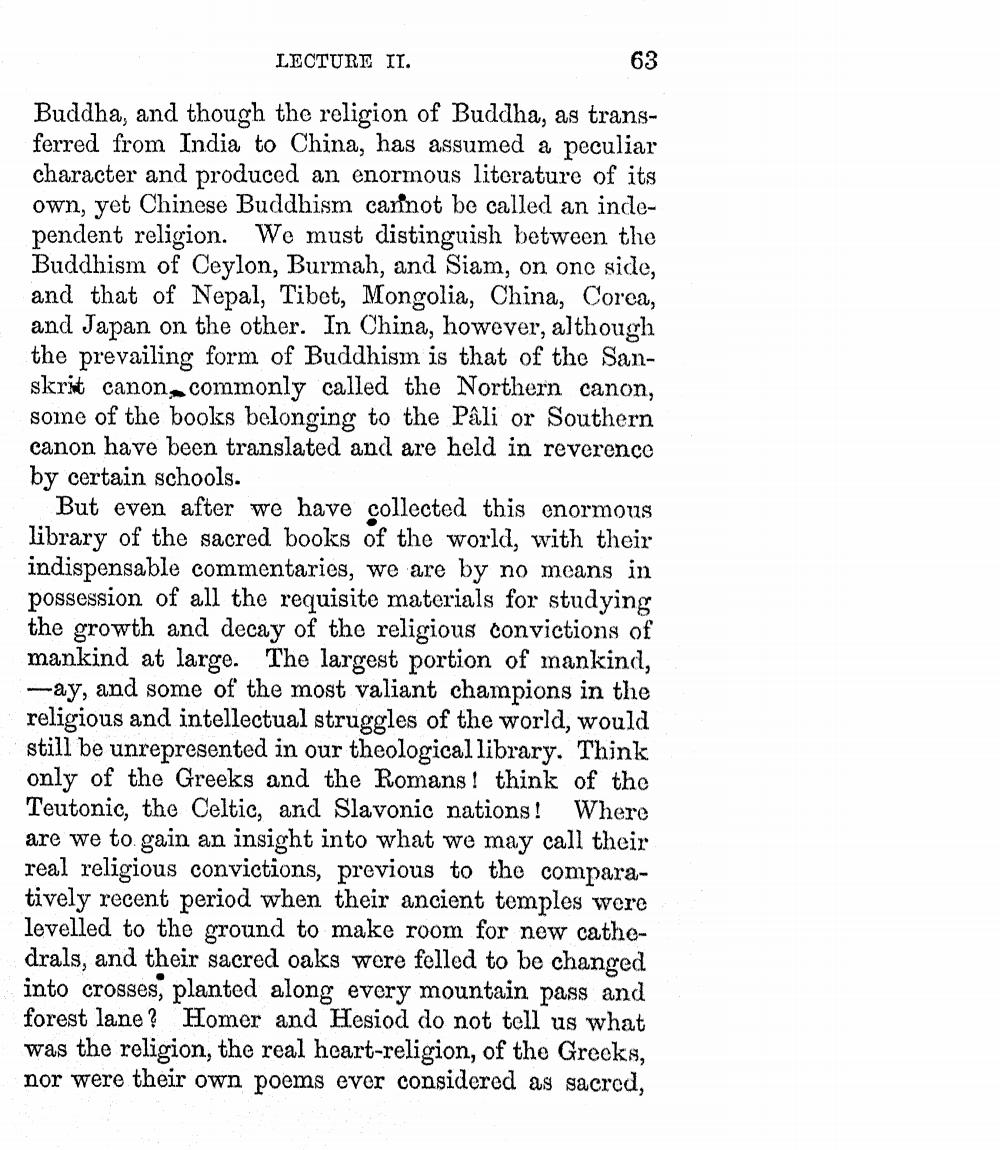________________
LECTURE IT.
Buddha, and though the religion of Buddha, as transferred from India to China, has assumed a peculiar character and produced an enormous literature of its own, yet Chinese Buddhism cannot be called an independent religion. We must distinguish between the Buddhism of Ceylon, Burmah, and Siam, on one side, and that of Nepal, Tibet, Mongolia, China, Corea, and Japan on the other. In China, however, although the prevailing form of Buddhism is that of the Sanskrit canon, commonly called the Northern canon, some of the books belonging to the Pâli or Southern canon have been translated and are held in reverence by certain schools.
But even after we have collected this enormous library of the sacred books of the world, with their indispensable commentaries, we are by no means in possession of all the requisite materials for studying the growth and decay of the religious convictions of mankind at large. The largest portion of mankind, -ay, and some of the most valiant champions in the religious and intellectual struggles of the world, would still be unrepresented in our theological library. Think only of the Greeks and the Romans! think of the Teutonic, the Celtic, and Slavonic nations! Where are we to gain an insight into what we may call their real religious convictions, previous to the comparatively recent period when their ancient temples were levelled to the ground to make room for new cathedrals, and their sacred oaks were felled to be changed into crosses, planted along every mountain pass and forest lane? Homer and Hesiod do not tell us what was the religion, the real heart-religion, of the Greeks, nor were their own poems ever considered as sacrcd,




